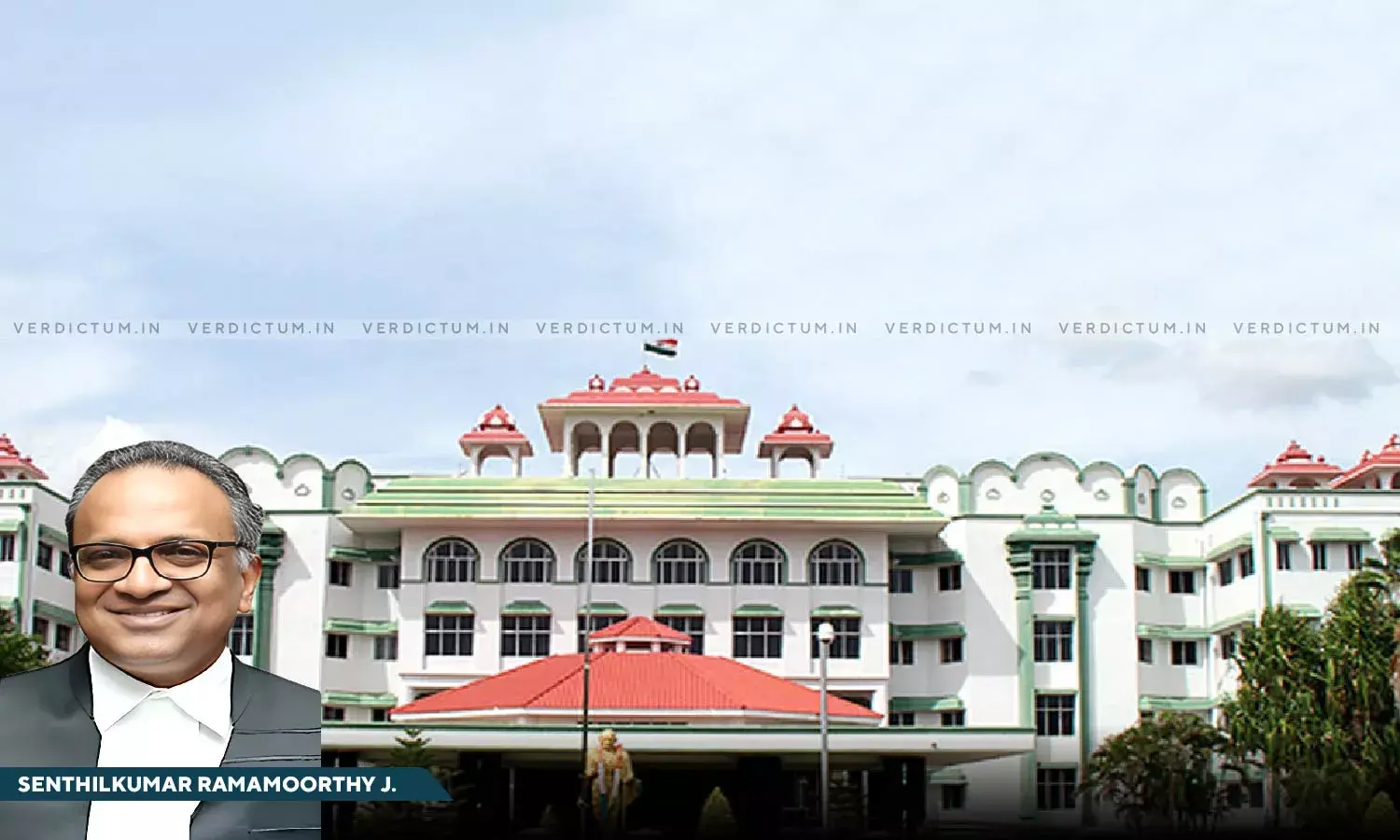Service Of Notice Under TM Act Read With Rules By E-Mail Is Only Complete When It Is Received By Applicant Or Attorney: Madras HC
The Madras High Court has held that service of notice under the Trade Marks Act read with Trade Marks Rules by e-mail is only complete when the e-mail is received by the applicant/attorney and not when it is sent.
The High Court held so while considering a petition seeking the grant of a mandamus calling for the records in order dated April 28, 2023, passed by the Trade Marks Registry (TMR) in an Application and to quash the same and to direct the TMR for providing an opportunity to the petitioner to file a counter statement to the oppositions filed against the said trademark application.
Therefore, emphasizing over the harmonious interpretation of Section 21(2) and Rule 18(2), a Single Judge Bench of Justice Senthilkumar Ramamoorthy observed that proof of issuance of e-mail is not sufficient for compliance with Section 21(2) of the Act read with Rule 18(1) of the Rules.
“The prescribed time limit would only run from the date of receipt of the e-mail, and the document relied on by the Registrar of Trade Marks does not qualify as evidence of receipt by the petitioner”, added the Bench.
Advocate Arun Karthik Mohan appeared for the Petitioner, whereas Advocate S. Janarthanam appeared for the Respondent.
The brief facts of the case were that the trademark application of the petitioner was abandoned as the counter statements were not filed in pursuant to the oppositions filed against the aforesaid application with the statutory timelines of 2 months from the data of receipt of the opposition. The TMR contended that the opposition were served on the petitioner by relying upon a document indicating transmission of the opposition notices on Jan 19, 2023, to which the petitioner countered that such document does not evince receipt of the opposition by the petitioner.
Finding that the TMR relied on the wording "the time of sending the e-mail" of Rule 18(2) which creates a legal fiction that a notice is deemed to have been served through e-mail upon dispatching such e-mail, the Bench observed that if so construed, then Rule 18(2) would not be in sync with Section 21(2) which provides that the time limit for filing the counter statement from the date of receipt by the applicant of the opposition.
The Bench therefore concluded keeping in mind the substantive rights of the petitioner as their trademark registration was at stake that prescribed time limit of two months would only run from the date of receipt of the e-mail, and the transmission document relied by the TMR does not qualify as evidence of receipt by the petitioner.
Cause Title: Ramya S. Moorthy v. Registrar of Trademarks and Anr.
Click here to read/download the Order




